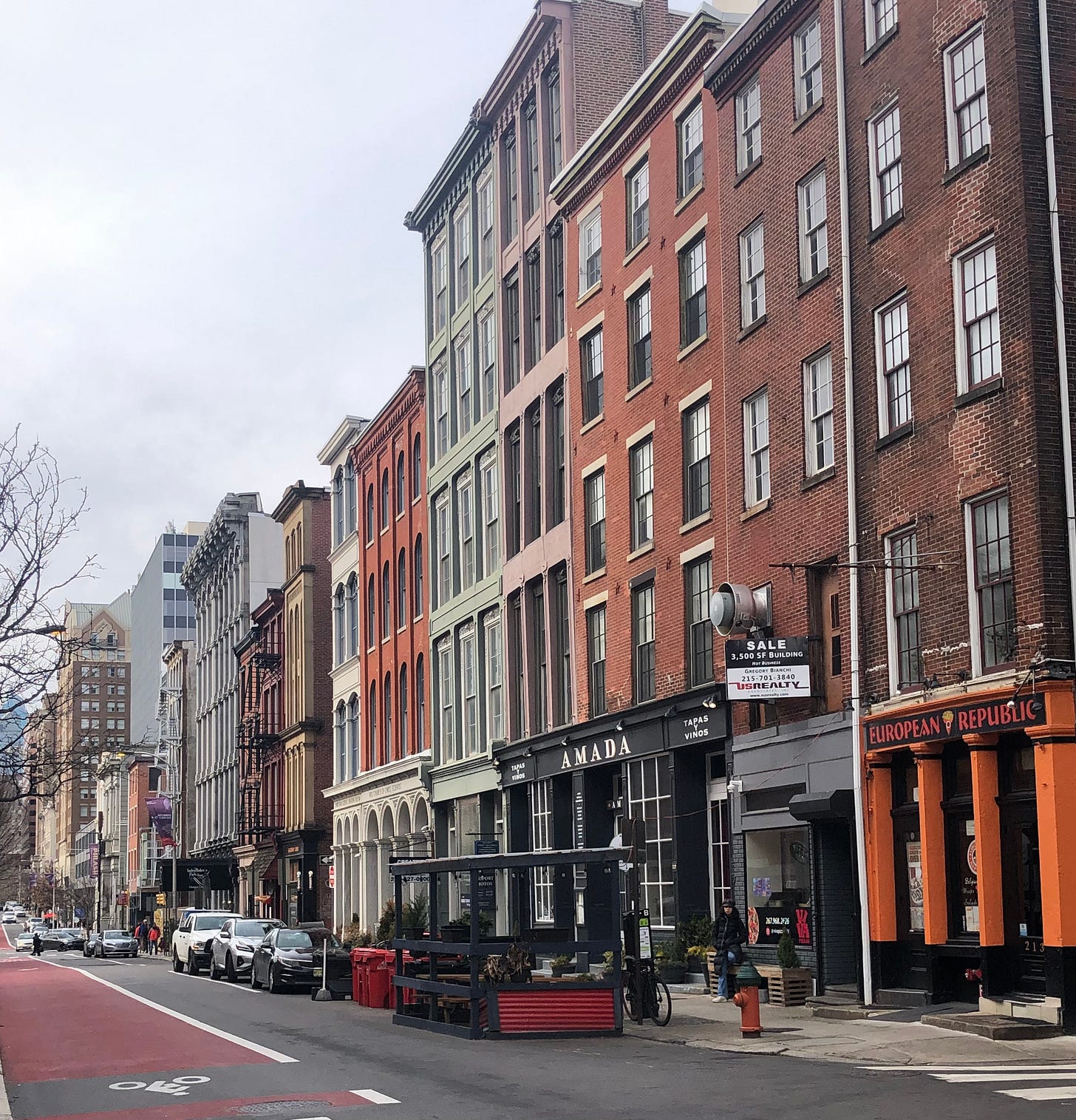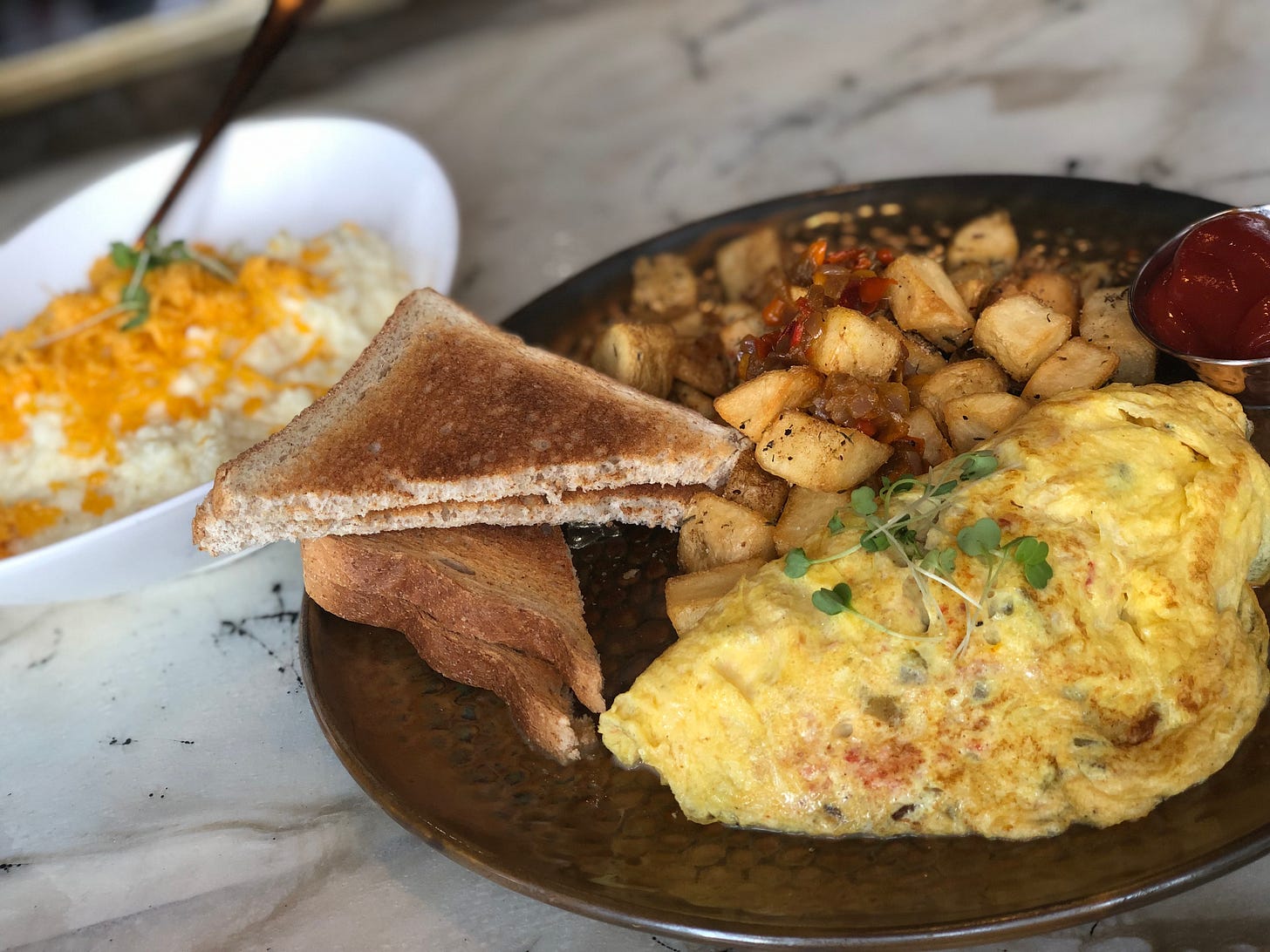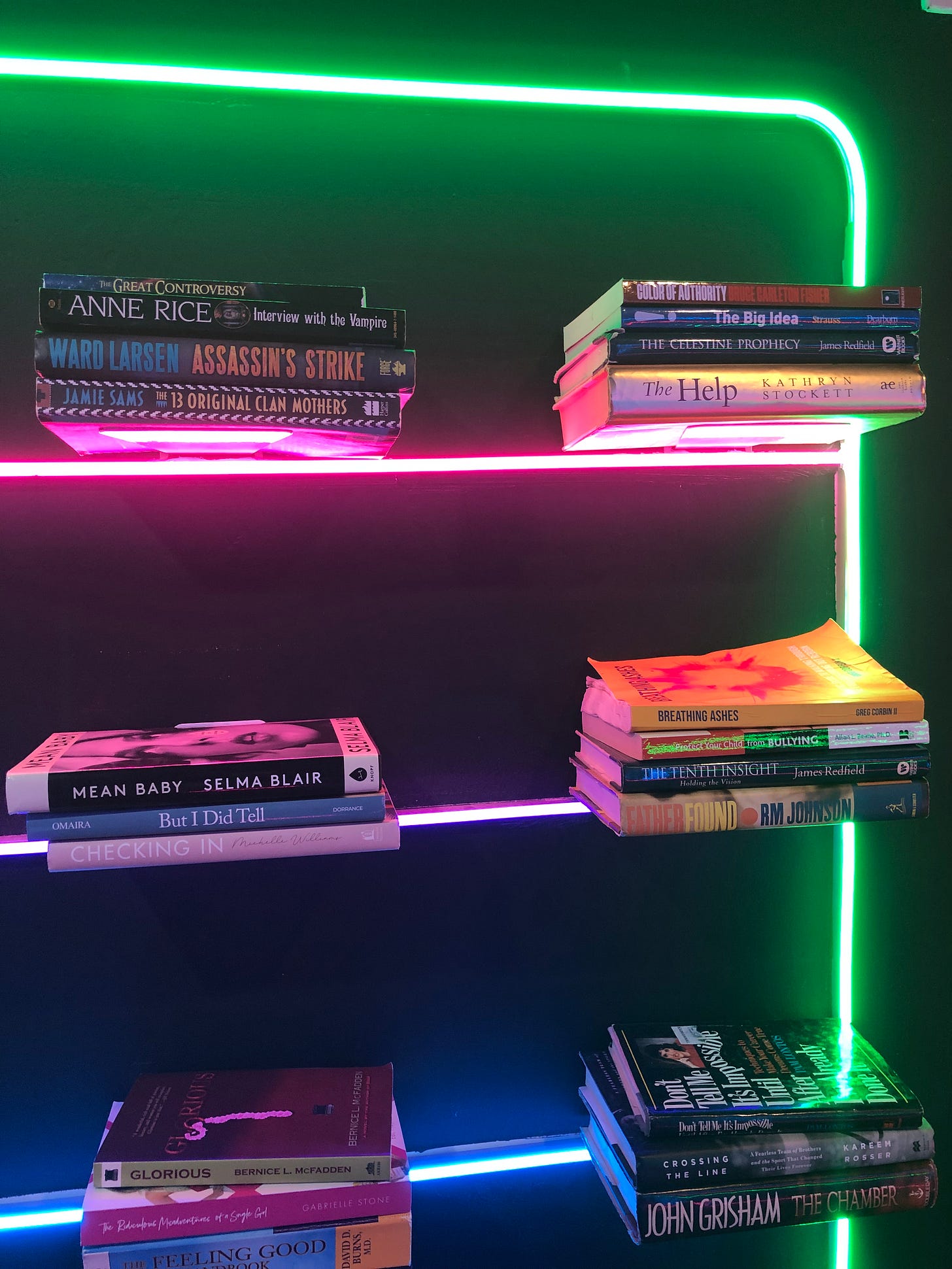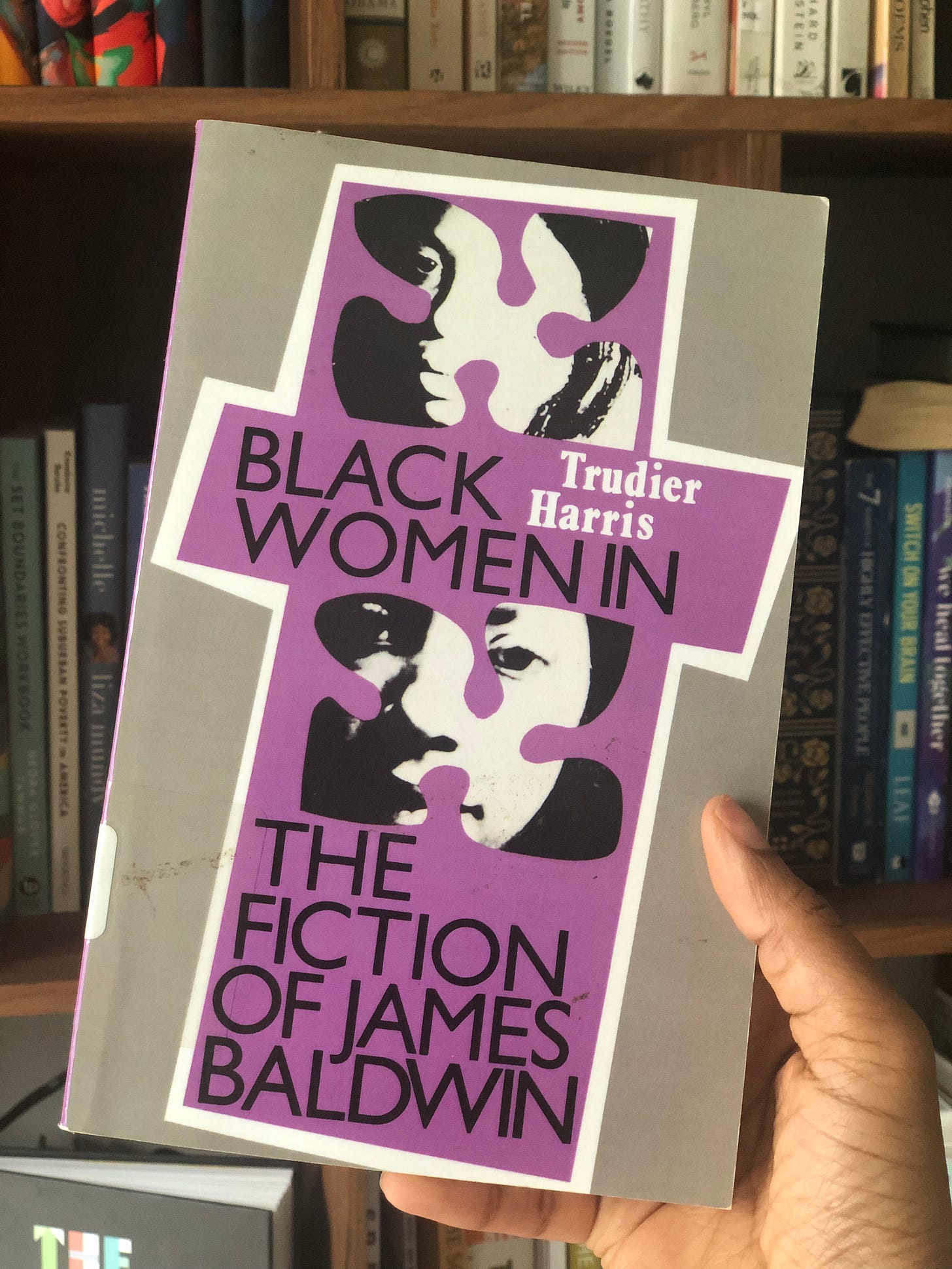the day I became a collector | notes from a solo day trip to philly
A lobster omelet brunch, a black woman owned bookstore, and a book on Baldwin.
February 5, 2023
7:00 AM - ATL to PHL
For short flights under three hours, I’m a sucker for a good $50 roundtrip deal from Frontier or Spirit. Despite the lack of complementary snacks and private mini-TVs, I can usually count on a performance from the passengers. I’m an astute people watcher. How we interact tells a lot about how we regard ourselves and others.
Living rent-free in my mind is a thought-provoking encounter between a middle-aged, stern faced woman in a fabulous fur coat and a middle-aged man with a backwards cap and pants far below his waist, his wide smile giving I’m happy to be here. Though the flight was a quick two hours, the man loudly and repeatedly tells everyone how long it was. The fur-coated woman goes, “Hmm.. you don’t fly often, do you?”
Unpack. What is your worldview, and how is it defining your character and your caricature? What is your core, those things that are true about you no matter where you are and what you’re doing? And what about those things you exaggerate, perhaps to make a point about yourself? Black art and literature is always posing this question to me.
What is your worldview, and how does it define your character and your caricature?
10:00 AM - Amina
I grab a Lyft to Amina, a black-owned restaurant in the Old City section of Philly. I originally wanted the Cheesesteak Beignets, but saved that for next time and went with a Lobster Omelet - butter poached lobster, pimento cheese, sweet peppers, and red onions served with home style hash browns and a side of cheese grits. I sat at the bar with a book, but no need for it as the staff and owner chatted me up as if they knew me in another life, giving me recommendations and well wishes on my day trip. This is something I don’t often feel in my home city of Atlanta, but almost every time I visit another historically black city (like New Orleans). Though I frequent lots of hospitable gems at home, I feel part of my city has loosened its character and gave way to caricature. I finished off my breakfast with warm apple pie and ice cream.
2:00 PM - Harriett’s Bookshop
Nestled in Fishtown is Harriett’s Bookshop, founded by literary activist Jeannine Cook. It feels like I’ve stepped into an art gallery. I find a cozy corner for myself in the basement where there’s a wide collection of books-on-sale, most of them slightly worn and probably out of print.
Up until this point, I hadn’t felt called to consider James Baldwin. I spent most of my time with the women - bell hooks, Audre Lorde. Rather than a list of Must-Reads consumed in a check-the-box manner, my literary taste is dictated by what I need to survive the season I’m in. Black books are like various renditions of the Bible to me, their sentences like scripture, their overarching themes a salvation balm.
Black books are like various renditions of the Bible to me, their sentences like scripture, their themes a salvation balm.
Among the rows of old books I find Black Women in the Fiction of James Baldwin by Trudier Harris, published in 1985. A former library book from Westside High School. Its description reads:
“In James Baldwin’s fiction, according to Harris, black women are conceptually limited figures until their author ceases to measure them by the standards of the community fundamentalist church. Harris analyzes works written over a thirty-year period to show how Baldwin’s development of female character progresses through time.
Black women in the early fiction, responding to their elders as well as to religious influences, see their lives in terms of duty as wives, mothers, sisters, and lovers. Failure in any of these roles leads to guilt feelings and the expectation of damnation. In later works, Baldwin adopts a new point of view, acknowledging complex extenuating circumstances in lieu of pronouncing moral judgment. Female characters in works written at this stage eventually come to believe that the church affords no comfort.
Baldwin subsequently makes villains of some female churchgoers, and caring women who do not attend church become his most attractive characters. Still later in Baldwin’s career, a woman who frees herself of guilt by moving completely beyond the church attains greater contentment than almost all of her counterparts in the earlier works.”
*Content warning: last paragraph mentions horrific abuse.
Am I ready for Baldwin though? On p. 8, Harris writes about Julia in Just Above My Head, who is sexually abused by her father and brother. This turns my stomach. You know how some black people are sick of slave narratives? Yeah. I can’t do incest narratives. I immediately close the book, which I will end up buying. I sit there and meditate on this difficult theme that isn’t new to black literature. It already exists on my bookshelf back home. Toni Morrison’s The Bluest Eye, for example. For now these treasures will sit unread until I’m ready to unpack the characters and caricatures I might find, not only in these books but in myself and the real-life people around me.
I spend the rest of my day at the bookshop before finding a customary cheesesteak and boarding my flight back home.






